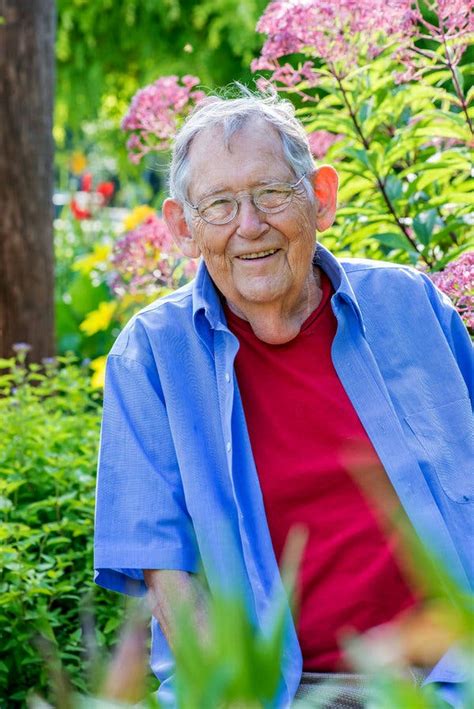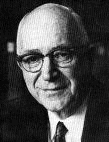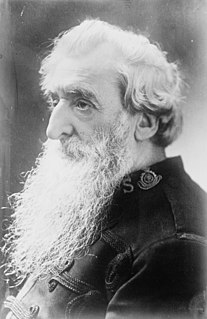A Quote by Thomas A. Edison
Related Quotes
Show me a person without prejudice of any kind on any subject and I'll show you someone who may be admirably virtuous but is surely no gardener. Prejudice against people is reprehensible, but a healthy set of prejudices is a gardener's best friend. Gardening is complicated, and prejudice simplifies it enormously.
Consider prejudice. Once a person begins to accept a stereotype of a particular group, that "thought" becomes an active agent, "participating" in shaping how he or she interacts with another person who falls in that stereotyped class. In turn, the tone of their interaction influences the other person's behaviour. The prejudiced person can't see how his prejudice shapes what he "sees" and how he acts. In some sense, if he did, he would no longer be prejudiced. To operate, the "thought" of prejudice must remain hidden to its holder
If a person is capable of rectifying his erroneous judgments in the light of new evidence he is not prejudiced. Prejudgments become prejudices only if they are reversible when exposed to new knowledge. A prejudice, unlike a simple misconception, is actively resistant to all evidence that would unseat it. We tend to grow emotional when a prejudice is threatened with contradiction. Thus the difference between ordinary prejudgments and prejudice is that one can discuss and rectify a prejudgment without emotional resistance.





































